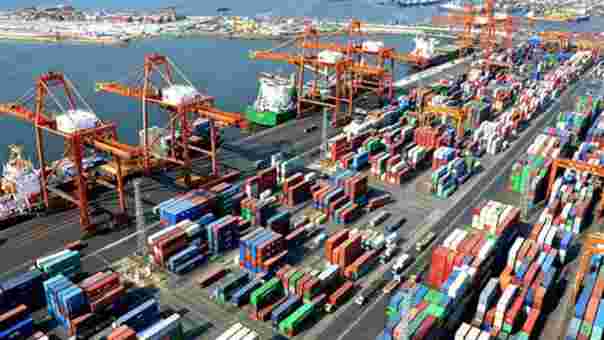Karachi – July 20, 2025: The Port Qasim Authority (PQA) released its daily shipping activity report for Sunday, July 20, 2025, outlining vessel movements and port operations over the previous 24 hours.
The report was updated at 0800 hours to provide all relevant stakeholders with timely insights into maritime traffic and terminal utilization at one of Pakistan’s busiest ports.
The shipping activity at Port Qasim remained robust as several vessels engaged in both cargo discharge and loading. This daily report serves as a vital tool for logistics operators, shipping lines, and supply chain stakeholders to plan their port-related operations efficiently.
According to the report, four vessels sailed from the port on Sunday. Among them were M.V. Akij Noble, which departed with a cargo of 18,800 metric tons of palm oil, and M.T. Chemroad Polaris, also carrying palm oil, totaling 18,100 metric tons. Another notable departure was M.T. Apanemo, a large tanker that sailed after offloading 57,534 metric tons of Mogas (motor gasoline). M.V. Xpress Salween also left port after completing operational formalities.
On the berthing side, six vessels were reported to have docked at different terminals. These included M.T. SC Hong Kong, which berthed at LCT terminal with 2,000 metric tons of palm oil; M.V. Xpress Salween, which returned to berth at QT2-I with container cargo; and M.V. Ever Brilliant, carrying 20,864 metric tons of rice. The gas oil carrier M.T. POP also berthed at the FOTCO terminal with a substantial consignment of 45,030 metric tons.
Port authorities emphasized the importance of continuous shipping activity for maintaining the smooth flow of imports and exports, particularly as Pakistan’s trade demands remain high. The daily report also provides a real-time snapshot of port efficiency, highlighting vessel turnaround times and berth occupancy.
Additionally, vessels M.V. Groton and M.V. Meghna Prestige were listed in the report for operations and expected departures later in the day.
Port Qasim continues to play a critical role in the country’s maritime logistics and supply chain network. With increased shipping activity and strategic coordination among agents and terminal operators, the port remains a key node in Pakistan’s commercial infrastructure.
